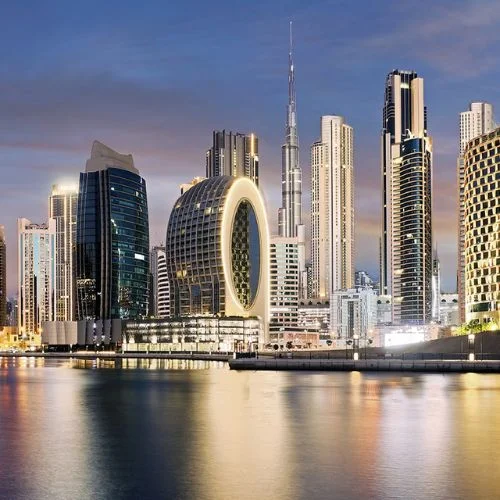Domino’s Pizza, India’s largest quick service restaurant chain with 1,625 locations, launched multiple “free rewards offers” on its own app last weekend, including delivery, takeaway, and dine-ins.
Large restaurants have increased the number of discounts and promotional offers on their own apps by 15-20 percent compared to those offered by aggregators Swiggy and Zomato, to offset steep commissions and search optimization fees charged by the aggregators and reduce reliance on them, according to industry executives.
Domino’s Pizza, India’s largest quick service restaurant chain with 1,625 locations, launched multiple “free rewards offers” on its own app last weekend, including delivery, takeaway, and dine-ins.
While Zomato and Swiggy charge 15-30% commissions on every order, new tech platforms like ThriveNow and Google-backed DotPe charge only 3-5%. Restaurants can set up their own digital services using these food tech platforms.
“We’ve grown 40% over the previous quarter, enabling restaurants to set up their own direct ordering platform; we expect to see further escalation in demand during the upcoming festive season,” said Dhruv Dewan, cofounder of Hashtag Loyalty, which operates ThriveNow.
Jubilant Foodworks NSE 0.63 percent, the master franchise for Domino’s Pizza in India, acquired a 35% stake in Hashtag Loyalty late last year.
Thrive charges a 5% commission and is looking to expand beyond its current 11,300 restaurants, according to Dewan.
McDonald’s, Domino’s, Social, Punjab Grill, deGustibus Hospitality, Indian Street Foods, Wow! Momo and Pizza Hut are two companies that offer higher discounts on their own apps.
According to executives, large brands’ orders from their own apps range between 10% and 25%, while smaller brands continue to rely heavily on aggregators for scale.
“Our focus is to increase promotions and provide more value through our own delivery platforms in order to entice customers to transact and reduce reliance on more expensive aggregators,” said Rohit Aggarwal, director of Lite Bite Foods, which operates Punjab Grill, Artful Baker, and YouMee. According to him, the company’s own platforms now account for nearly 20% of its delivery business.
According to executives, the relationship between restaurants and aggregators has both benefits and drawbacks.
“There is an inherent benefit that restaurants receive from aggregators in terms of scale and last-mile delivery, particularly for mid-sized restaurants that lack the budget to set up their own deliveries.” “However, restaurants are also dealing with very high commission costs,” said Devangshu Dutta, CEO of retail consultancy Third Eyesight.
Some direct delivery brands are also focusing on the nascent but growing subscription-based meal services and menu customization.
“It is critical for restaurants to reclaim some control of their digital landscape rather than being completely reliant on aggregators.” This will not only save them huge delivery costs but also give them access to more customer data; aggregators have thrived on discounts, which is funded almost entirely by the restaurants,” said Anurag Katriar, chief executive of Indigo Hospitality.
Brands are delivering through their own fleet in addition to third-party delivery operators such as Dunzo and Shadowfax, which work through logistics aggregators or directly with restaurants.
“We are offering the best price on our own platforms and our discounts are in the range of 20-25 percent,” said Riyaaz Amlani, CEO of Impresario Handmade Restaurants, which operates Social, Smoke House Deli, and Salt Water Cafe.
Large brands’ orders from their own apps range between 10% and 25%, according to executives, while smaller brands continue to rely heavily on aggregators for scale.
Brands are delivering through their own fleet in addition to third-party delivery operators such as Dunzo or Shadowfax, which work through logistics aggregators or directly with restaurants. Some direct delivery companies said they were also focusing on subscription-based meal services and menu customization.
Over a dozen large restaurant chains banded together in the middle of last year to launch the #OrderDirect movement, amid an escalation of a long-running feud between restaurants and aggregators. The food service companies claimed that aggregators charged exorbitant commissions and obscured critical customer data.
According to the National Restaurant Association of India, the annual food services market in India is worth approximately Rs 4.2 lakh crore and is expected to grow to Rs 7.7 lakh crore by 2025.














